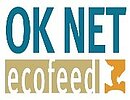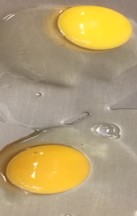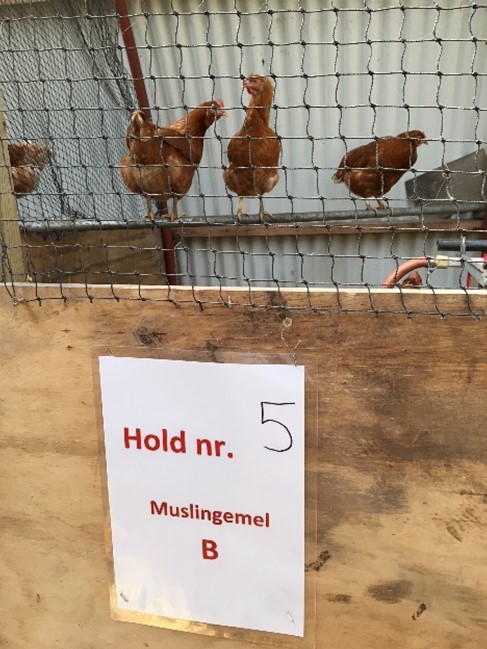Blue mussels as feedstuff
Problem
Organic production should use 100 % organic protein in 2025, but the availability of organic protein is limited.
Solution
Mussel meal can replace other less sustainable protein-rich ingredients, in particular fishmeal, in the diets of organic pigs and layers. Furthermore, mussels can lessen water eutrophication by uptake of nitrogen and phosphorus.
Benefits
Feed intake, weight gain and egg-laying are sustained at normal levels when feeding mussel meal to grower-finisher pigs or layers. Egg quality remains good with a more orange yolk colour compared to feeding fishmeal (Figure 1).
Applicability box
Geographical coverage
Coastal regions
Application time
All year after harvest of blue mussel
Required time
Time of feeding
Period of impact
Immediate impact
Equipment
No special machinery needed for feeding
Best in
Piglets, layers
Practical Recommendations
- Mussels are harvested from nutrient-rich water before maturation.
- Mussels are deshelled by boiling, dried and processed into meal with approximately 60 % crude protein.
- Mussel meal is included in the diet at a maximum 8% in layer hen diets to avoid off flavour in eggs (Figure 2).
- No maximum inclusion rate has been established in piglets.
- Diets can be optimised for essential amino acid requirements and will often include less crude protein.
Further information
Reading
- Afrose, S., M. Hammershøj, J. V. Nørgaard, R. M. Engberg, and S. Steenfeldt. 2016. Influence of blue mussel (Mytilus edulis) and starfish (Asterias rubens) meals on production performance, egg quality and apparent total tract digestibility of nutrients of laying hens. Animal Feed Science and Technology 213:108-117. (Article) doi: 10.1016/j.anifeedsci.2016.01.008
- Jönsson, L., and K. Elwinger. 2009. Mussel meal as a replacement for fish meal in feeds for organic poultry–a pilot short-term study. Acta Agriculturae Scand Section A 59(1):22-27.
- Jönsson, L., H. Wall, and R. Tauson. 2011. Production and egg quality in layers fed organic diets with mussel meal. Animal 5(3):387-393.
- Nørgaard, J. V., J. K. Petersen, D. B. Tørring, H. Jørgensen, and H. Lærke. 2015. Chemical composition and standardized ileal digestibility of protein and amino acids from blue mussel, starfish, and fish silage in pigs. Animal Feed Science and Technology 205:90-97.
- Petersen, J. K., B. Hasler, K. Timmermann, P. Nielsen, D. B. Tørring, M. M. Larsen, and M. Holmer. 2014. Mussels as a tool for mitigation of nutrients in the marine environment. Marine pollution bulletin 82(1-2):137-143.
- Wallenbeck, A., M. Neil, N. Lundeheim, and K. Andersson. 2014. Mussel meal diets to growing/finishing pigs: influence on performance and carcass quality. In: Book of Abstracts of the 65th Annual Meeting of the European Federation of Animal Science, p 249.
- Check the Organic Farm Knowledge platform for more practical recommendations.
About this practice abstract and OK-Net EcoFeed
Publishers:Aarhus University, AU Foulum,
DK8830Tjele,
Phone +45 8715 0000,
,
https://agro.au.dkResearch Institute of Organic Agriculture (FiBL),
CH5070Frick,
Phone +41 62 865 72 72,
info.suisse@fibl.org,
www.fibl.orgIFOAM Organics Europe,
BE1000Brussels,
Phone +32 2 280 12 23,
www.organicseurope.bio,
www.organicseurope.bio
Review: Lindsay Whistance, Organic Research Centre, UK
Contact: marleen.vanderheide@anis.au.dk
Permalink: https://organic-farmknowledge.org/tool/37800
https://orgprints.org/view/projects/OKNetEcoFeed.html
This practice abstract was elaborated in the Organic Knowledge Network on Monogastric Animal Feed project. The project is running from January 2018 to December 2020. The overall aim of OKNet EcoFeed is to help farmers, breeders and the organic feed processing industry in achieving the goal of 100% use of organic and regional feed for monogastrics.
Project website: https://ok-net-ecofeed.eu/
IFOAM Organics Europe (project coordinator), BE; Aarhus University (ICROFS), DK; Organic Research Centre (ORC), UK; Institut Technique de l'Agriculture Biologique (ITAB), FR; Research Institute of Organic Agriculture (FiBL), CH; Bioland, DE; Associazione Italiana perl'Agricoltura Biologica (AIAB), IT; Donau Soja DS, AT; Swedish University of Agricultural Sciences, SE; ECOVALIA, ES; Soil Association, UK.



This project has received funding from the European Union’s Horizon 2020 research and innovation programme under grant agreement No 773911. This communication only reflects the author’s view. The Research Executive Agency is not responsible for any use that may be made of the information provided. The authors and editors do not assume responsibility or liability for any possible factual inaccuracies or damage resulting from the application of the recommendations in this practice abstract

